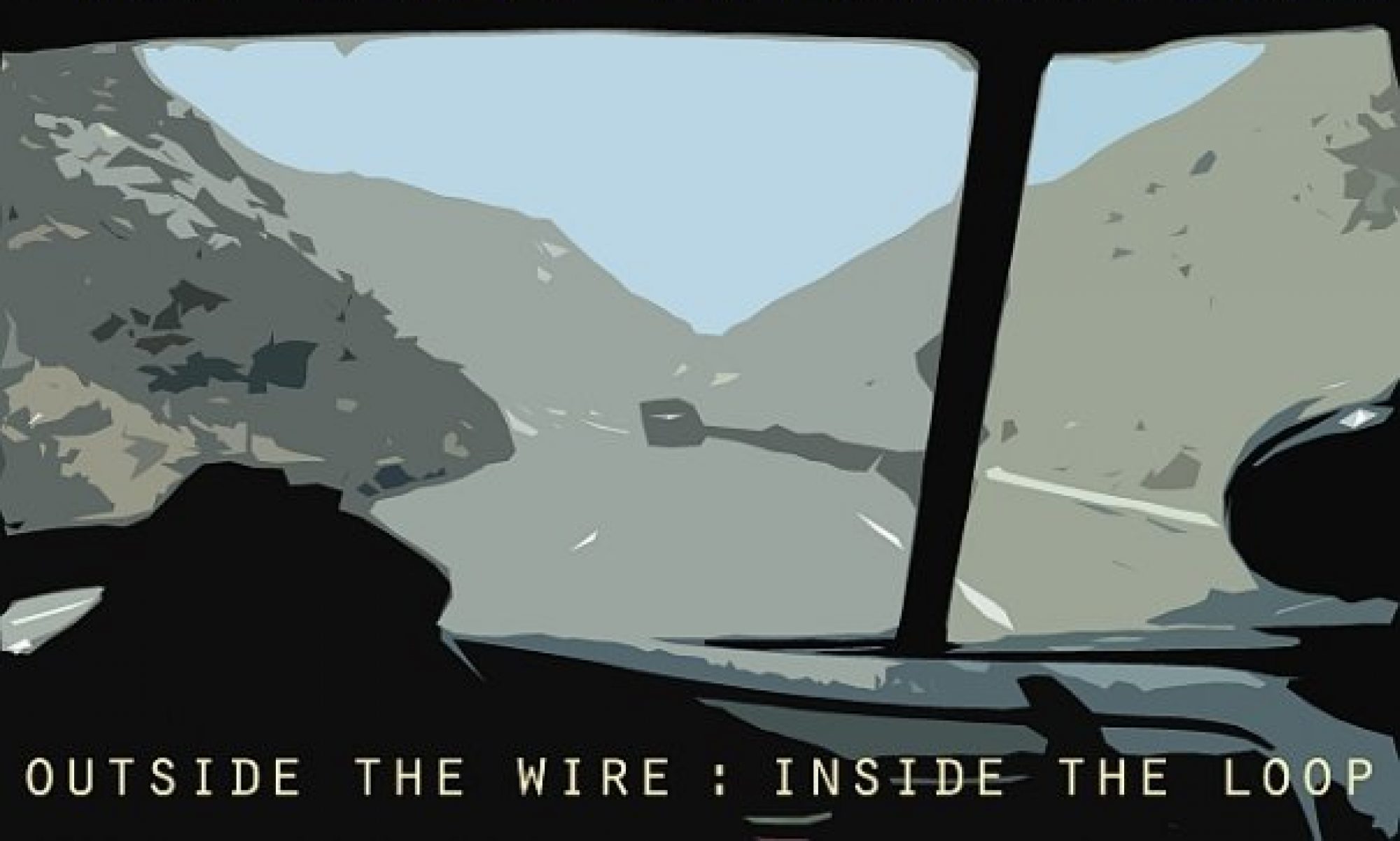Editors Note: This post is worth investing some time to digest. The author, Jake Allen, has an excellent, thought provoking, response to my latest post on Afghanistan. Jake, a former Marine infantry officer and a good friend asks the hard questions on our current efforts in Afghanistan. A mini bio for Jake is located at the end of this post.
Last week’s post by Babatim posed as interesting question “Will Security Sector Assistance Work in Afghanistan?” His observations on the current inadequacies as well as his prescribed solutions was certainly thought-provoking.
Sure, who could argue the merits of and need for basic military leadership and esprit de corps borne of shared commitment and sacrifice at the small unit level. Aligning ANSF with regional tribal leaders (warlords) would most likely be a tactical improvement to the current arrangement which clearly isn’t getting results. And, replacing the NATO military train and assist teams with private contractors, who might be willing to engage in combat, could reduce overall costs, although that’s debatable if, as Babatim suggests, tactical air support and other expensive support would remain part of the package. In any case, on its face, it all seems logical.
However, Babatim’s observations and suggestion, true as they may be, only prompt a much more important set of questions. Like, what would we achieve by changing our tactics this way? A decentralized Afghanistan run by dozens of autonomous regional warlords sounds a lot like Afghanistan in the 1990s. After 15+ years, thousands of KIA/WIA and over $800 billion taxpayer dollars spent is “rebuilding” Afghanistan in the image of its former self now the goal? I’m reminded of Sun Tzu’s admonition that, “strategy without tactics is the slowest route to victory, while tactics without strategy is the noise before defeat.” After 15 years I think it’s safe to say we are at best on the slow path.
If this were truly a binary choice between using military or private contractors, then I support the later for all the reasons Babatim outlined and for one major one he didn’t. Transitioning to private contractors would help preserve the military’s reputation as they departed the stage. Let’s face it, General after General have devised plans that simply have not achieved lasting results. In truth, I place more blame on our elected civilian leaders and the State Department, but I’ll leave that for another post. In any event, if the military could be seen to be following orders to withdraw while handing the baton to private contractors it would largely give them the top-cover they need to execute a tactical retreat with their dignity intact. If all that ends up costing somebody less money, then so much the better. But question remains, why does that somebody have to be U.S. taxpayers who haven’t even been born yet? Why should future generations of Americans be forced to pay for new tactics, even at a lower price, when no real strategy for Afghanistan exists?
Let’s be clear, for Afghans, duping well-meaning but ignorant foreigners into funding their wars is the national pastime. The artistry and skill of separating foreigners from their money has been passed down from fathers to sons among regional tribal elders and modern-day politicians for millennia. Simply stated, this is what they do.
We should be asking, if these new proposed tactics, aligning ANSF with warlords and privatizing the train and assist missions are so necessary, beneficial and cost-effective why aren’t the warlords themselves willing to make the financial investment? After all, they will effectively be securing their own regional kingdom for future generations.
Or…maybe, just maybe, this is merely the next western tactic the Afghans are willing to go along with since old paleface is willing to pay for it. Sorry, but I’ve heard these shepherds crying wolf too many times before. I’m willing to wager that when the Taliban push these warlords too far they’ll find all the Muj they need without U.S. taxpayer money. As a matter of self-preservation, they’ll literally have the rest of their lives to solve the problem, or not.
Still, if it’s funding they so desperately need to pay the privateers’ invoices, why can’t the Qataris, Emiratis or Saudis pay for it? They have the money, whereas the U.S. doesn’t, and aren’t they equally committed to preventing the spread of Islamic extremism? No, both the Arabs and the Afghans know that only western powers fall for these scams.
If President Trump is the skilled negotiator he claims he should remind our Afghan counterparts and allies that the universe has a natural order. The fittest and most committed tend to survive. So, if it is the case that the Taliban simply have more “want to” when it comes to controling Afghanistan then there’s really nothing money can buy to square that circle. The Taliban’s moral will likely be 3 times greater than anything physical that can be purchased, and the results will be inevitable.
President Trump should tell our so-called Afghan friends that we are OK with that. Remind them that two previous presidential administrations have tried mightily for over 15 years to help the Afghan people and it hasn’t worked. We’re now ready to try something else. As the world’s greatest deal-maker the President should make it clear that the U.S. is open to negotiating with their vanquishers for a while to see if he can get a better deal with for the U.S. I mean, how much worse could that actually be? Probably not a whole lot worse and at least we could use the $45 billion earmarked for Afghanistan in 2018 alone to instead rebuild infrastructure in the U.S. The fact is, the U.S. doesn’t need Afghanistan nearly as much as they need us. We have all the leverage in any negotiation.
But as I said, our choices aren’t, or at least they shouldn’t be. There is a third way forward, and it’s one that has a chance of being successful. President Trump should form a team of advisors to develop an actual tangible goal and strategy to achieve it. The process goes like this:
First Level Questions: What is the end-game? What does “success” even look like? How do we measure incremental progress and ultimate success so that the American people, our Afghan counterparts and not least our enemies know that we’ve achieved our goal(s)? Maybe privateers are the correct means to the end. But WTF is the end? What is the Commander’s (in Chief) Intent and the Final Result Desired (FRD)? If we cannot do this then we shouldn’t stay in Afghanistan.
Next Level Questions: Is that FRD realistic and achievable? Do most of the Afghan people share in the vision? If not, then at best they are a passive terrain feature to navigate around and at worst they are an active force providing aid and comfort to the enemy. For the sake of argument let’s just assume that the FRD is overwhelmingly supported by the Afghans. What then is the estimated cost to the U.S. in terms of blood and treasure to achieve it? How many years, how many lives would we need to commit? How many billions of dollars of debt would we need to incur?
Level 3 Questions: Only after Levels 1 and 2 are complete can we finally ask ourselves: Is the cost to achieve that FRD worth it? What does the US get in return for our investment? If you think turning Afghanistan into a modern society would guarantee the security of our homeland you’re dead wrong. In the past 15 years, while we have been dicking-around chasing ghosts our enemy (Islamic terrorism) adapted and moved on. The enemy no longer requires remote “safe havens” in places like Helmand province to plan attacks on our homeland. And even if they have a few safe havens our current ability to detect and destroy them is light years ahead of where it was in 2001. So, ask yourself, what are we really getting in return for our investment?
But I doubt President Trump will form the committee or if he does they can’t or won’t clearly state a Final Result Desired. Not because the questions above are hard to answer, they aren’t. Rather the answers these questions produce cannot be sold to the American people which means new tactics are just the noise before eventual defeat.
Jake Allen is a co-founder and Managing Partner at the Mozayix International, a leading private security consultancy. He has more than 15 years experience providing private security services in Iraq, Afghanistan, Yemen, Libya, Lebanon, Turkey and Ukraine. Prior to his contracting career he served as an Infantry Officer in the U.S. Marine Corps.



The proper “goal” was achieved in 2001. AQ leadership had left the country. Even having that as the end state that requires you to believe that Afghanistan was necessary as a base to attack the US. It wasn’t but that wasn’t clear in 2001 when administration officials were still showing diagrams of terrorist bases that looked like something Spectre would have in a hollow volcano.
Everything post 2001 has been a waste. Everything going forward will likely be a waste but this is what huge bureaucracies do. They find something to do. The War of Drugs. Afghanistan. Iraq. Libya. Syria. The War on Poverty. Climate Change. Big education…etc.
Not wasting money in Afghanistan however doesn’t mean that $ 45 billion will end up spent wisely or not even borrowed. It will on other dubious projects like mini-nukes, raising tensions with Russia or China or a new heavy bomber.
The only interests the west has in Afghanistan are trade, miniscule, and our own security.
Security is 2 parts. One, ensuring they do not attack us. They won’t, they never have, they haven’t the ability to do anything but annoy us.
Two, ensuring they don’t harbor or assist people who attack us. This seems to no longer be much of a problem.
Both parts can be achieved by simple gunboat diplomacy. If they cause us death or destruction we repay it tenfold or greater, every time. Our only risk is that factions will impersonate their enemies in attacking us to induce us to attack those enemies. We can solve that with patience, some intelligence, a bit of bribery and if that fails random attacks on the whole country. Let them control or properly identify for us their own assholes or face the consequences.
In the recent book Directorate S by Steven Coll on the Afghan/ Pak war post 9/10 he recounts a US gov study that listed the only two vital goals in the theatre: Destroy AQ (which was in Pakistan) and prevent Pakistan’s nuclear weapons from being stolen. Nothing to do with Afghanistan. Nothing to do with COIN. No development. No little girls to school. No counter narcotics. No women’s rights. No training the ANSF.
Despite understanding that the US had no vital goal in Afghanistan and that almost everything spent there was wasted the “system” just couldn’t let go. They had to keep pouring money in for one suspects personal financial and career reasons and ironically given the amount of overt patriotism often on show to the detriment of the country.